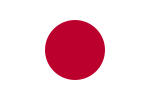of ryūkōka were developed from Western classical music. Ryūkōka ultimately split into two genres: enka and poppusu. Unlike enka, archetypal ryūkōka songs...
37 KB (3,868 words) - 03:55, 25 January 2024
War II. Kayokyoku, though associated with ryūkōka, also refers to a specific musical genre unique from ryūkōka. For example, Kenji Yamamoto (山本健治) said...
16 KB (1,714 words) - 07:19, 18 May 2024
Enka (section 1920s–1940s: Era of ryūkōka)
form, which adopts a more traditional musical style in its vocalism than ryūkōka music, popular during the prewar years. Modern enka, as developed in the...
42 KB (4,555 words) - 21:27, 22 May 2024
J-pop (section 1920s–1960s: Ryūkōka)
city pop, anisong, Vocaloids and VTubing. Japanese popular music, called ryūkōka before being split into enka and poppusu, has origins in the Meiji period...
108 KB (11,831 words) - 16:51, 22 May 2024
Indian Bhangra Filmi Hindutva Indonesian Iranian Japanese City Kayōkyoku Ryūkōka Shibuya-kei Kazakhstani Korean North South Lao Malaysian Pakistani Philippine...
46 KB (4,743 words) - 17:40, 12 May 2024
(古関 裕而, Koseki Yūji, August 11, 1909 – August 18, 1989) was a Japanese ryūkōka, gunka, march, fight song and film score composer. His real name was also...
3 KB (214 words) - 10:00, 9 March 2024
和歌子), Japanese sports sailor Yoshio Tabata (田端 義夫, 1919–2013), Japanese ryūkōka and enka singer, songwriter, and electric guitarist Yūki Tabata (田畠裕基)...
2 KB (219 words) - 18:51, 26 July 2023
September 22, 1999) was a Japanese female soprano chanteuse and popular music (ryūkōka) singer. She was dubbed the "Queen of Blues" in Japan. Awaya was born as...
9 KB (847 words) - 21:46, 16 September 2023
Shōji Tarō, December 11, 1898 – October 4, 1972) was a popular Japanese ryūkōka singer. He also used the aliases Shōji Shirō (庄司史郎), Asabuki Kaoru (朝吹薫)...
6 KB (604 words) - 16:46, 24 July 2023
1923 Great Kantō earthquake. As ryūkōka singer "Ichirō Fujiyama", he signed with Nippon Columbia, though singing ryūkōka was a taboo for his school. Meeting...
14 KB (1,483 words) - 17:27, 16 February 2024





